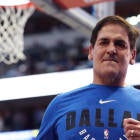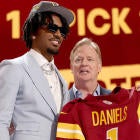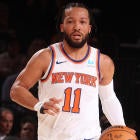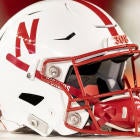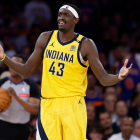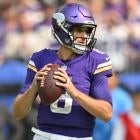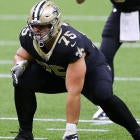CBS Sports has a picks and projections site called SportsLine. Its picks are powered by advanced computer simulations and sports insiders, experts, and former bookmakers. Visit SportsLine now for full details. Use promo code "TOUCHDOWN" and you can get your first month of SportsLine for a buck, courtesy of the Pick Six Podcast.
Owners of professional sports teams across the four major sports are already doing pretty well in terms of revenue generated, but they might be doing even better after the Supreme Court lifted a federal ban on sports gambling Monday. Even David Tepper, who is set to buy the Carolina Panthers for $2.2 billion in the coming weeks, may have already made a profit on his purchase.
According to Dallas Mavericks owner Mark Cuban, in an interview with CNBC's "Squawk Alley," the decision by SCOTUS to open the floodgates for legalized sports gambling caused the value of every major sports team to "double."
"I think everyone who owns a top four professional sports team just basically saw the value of their team double," Cuban said. "It can finally become fun to go to a baseball game again."
That's Cuban in a nutshell right? Bold, potentially hyperbolic economic statements about various sports franchises coupled with an unnecessary shot at a non-NBA sport.
But he's not necessarily wrong either. If you own a professional sports team, a brand-new stream of revenue just opened up in a big way. Sports leagues are going to figure out a way to make money on this gambling endeavor, whether it be through charging more for licenses, charging an integrity fee for various states to gamble or even creating their own apps for in-stadium gambling, which was something Cuban hinted at I believe.
"It's easy to see how you'll have fun at the stadium, at the arena or while you're watching —whether its online or traditional platform," Cuban added.
Going to any sporting event and being able to legally wager on the outcome of the next play, on every play, changes it from a sporting event to a casino-style setup of sorts.
There are some caveats to Cuban's statement, of course. Doubling every professional franchise in value is probably a little bit over the top. David Tepper is about to pay $2.2 billion for the Carolina Panthers when he becomes the team's new owner; let's not pretend the Panthers instantly are valued at $4.4 billion. They certainly see a bump in value in terms of future revenue, and perhaps the forthcoming decision spurred Tepper's interest in stroking a check for $2.2 billion, but the people selling the Panthers weren't going to magically get $3 billion for the team as a result of this change from the Supreme Court.
Additionally, even one of Cuban's fellow NBA owners, Tilman Fertitta of the Rockets, said he hopes Cuban is correct but the existing black market and future federal regulation, which could come despite the states being involved, may impact the situation.
Cuban counters that idea by noting the states need to work together in order to prevent too much regulation from above.
"It really comes down to what the states do. How the states handle the implementation and whether or not they work together will determine how all this plays out," Cuban said. "If states are smart, they'll come together and work on a single solution."
Good luck with that. Alabama and New Jersey are not working together on something they fundamentally oppose. Alabama is like Bushwood, and gambling is illegal. Seeing 50 states with different interests and different philosophical beliefs come together in order to figure out the answer for a very complex problem would be an upset.
But regardless of how this plays out, the owners of professional sports teams are certainly big winners in the SCOTUS ruling because of what it gives them in terms of a new revenue stream. What a surprise to see billionaires come out on top.












